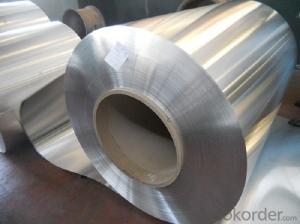Mirror Finish Aluminium Coil for Building Materials
- Loading Port:
- Shanghai
- Payment Terms:
- TT OR LC
- Min Order Qty:
- 2.5
- Supply Capability:
- 5000 m.t./month
OKorder Service Pledge
OKorder Financial Service
You Might Also Like
Item specifice
Mirror Finish Aluminium Coil for Building Materials
l Product Information
1. Alloy: 1100, 1145, 1050, 1060, 1070, 3003, 3105, 3A21, 3005, 3105, 3A21, 5052,5754,5082, 5083, 5182,5A03, 6063,6061,6082,8011 |
l Packaging & Delivery
Packaging detail: Standard seaworthy exporting carton, Wooden pallets, waterproof paper and plastic coverage or as customer's requirements
Delivery detail: about 25 days from received original L/C or advance payment.
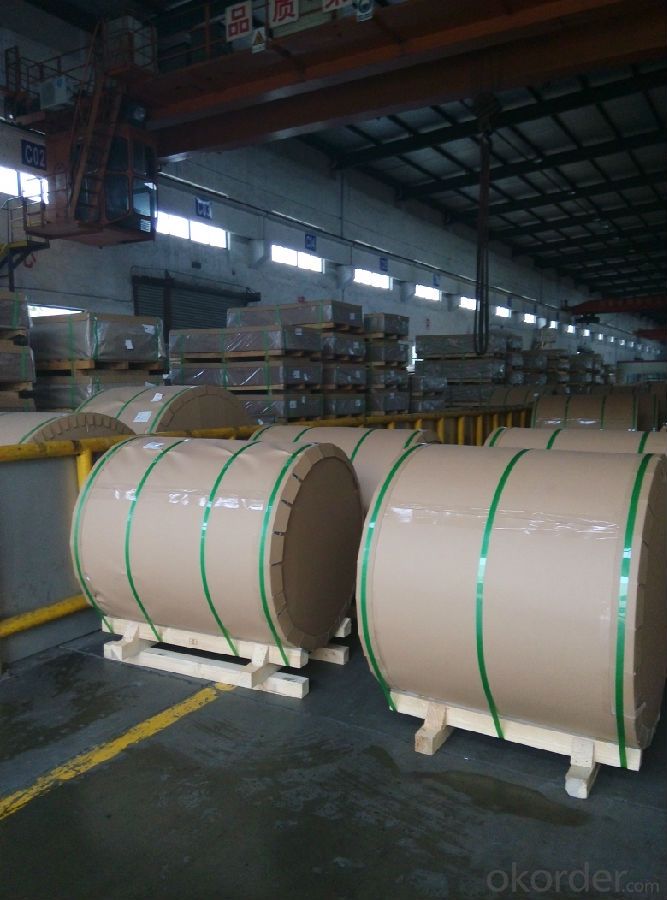
l Company Profile
CNBM International Corporation, China National Building Materials (Group) Corporation, is one of the largest companies in China building material & equipment industry, with 42,800 employees and sales in 2005 of US Dollar 4.395 billion. In 2006, China National Building Material Company Limited was listed on Hong Kong Stock Market with the stock code as 3323.
Aluminium coil is a popular product in the market of CNBM. With advanced technology and equipment, CNBM has sold its hight quality aluminium coil to the world.
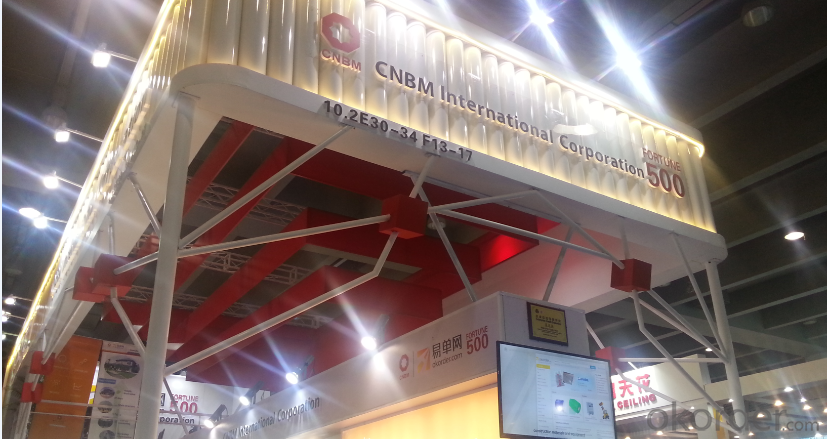
l Product Images
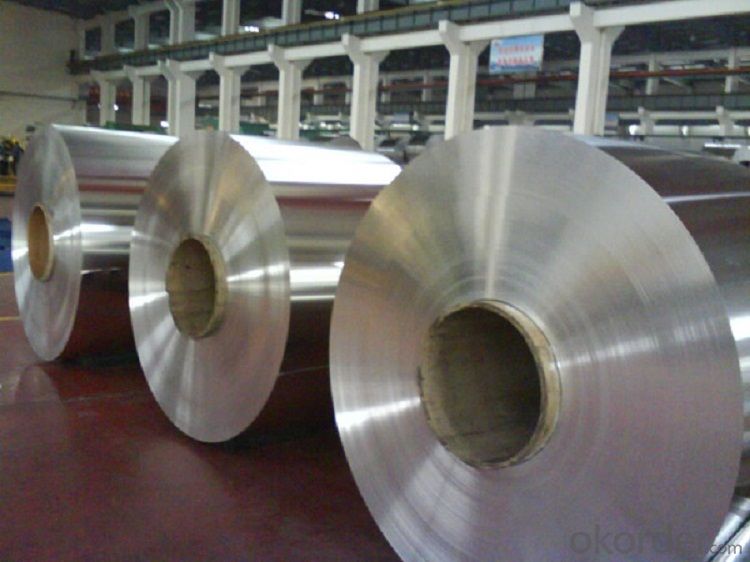
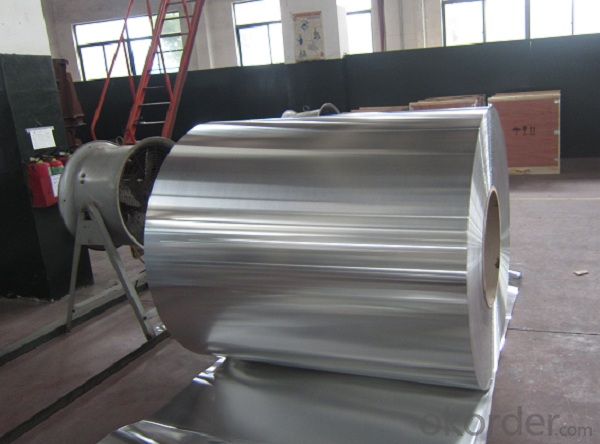
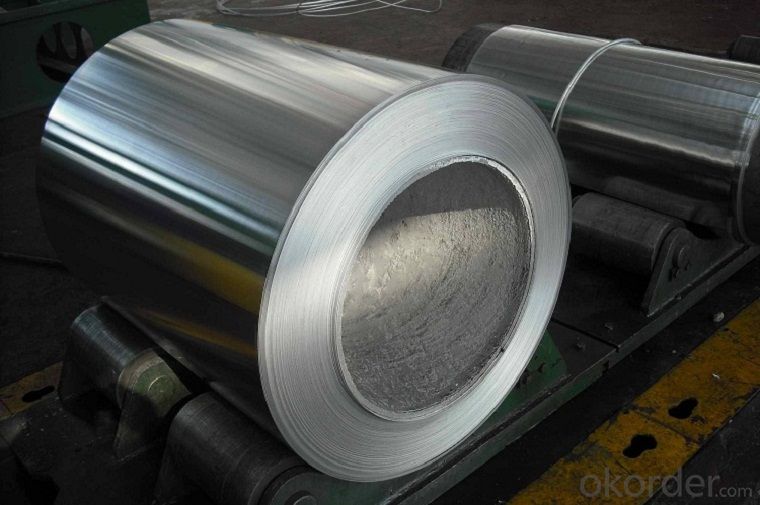
l Certificates
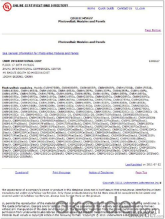
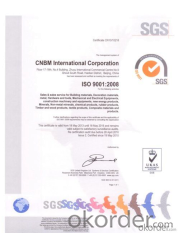
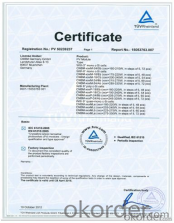
l FAQ
Q: Do you provide free samples?
A: Yes, free samples will be sent to you on freight at destination.
Q: Can I get your latest products catalogue?
A: Yes, it will be sent to you in no time.
Q: What is the MOQ?
A: 2.5 tons
Q: What are your payment terms?
A: We accept L/C, T/T.
- Q:How are aluminum coils used in electrical applications?
- Due to their advantageous properties, aluminum coils find wide application in various electrical uses. Transformers, motors, and inductors are the primary domains where these coils are employed. Transformers utilize aluminum coils to facilitate the transfer of electrical energy from one circuit to another. These coils are wrapped around a magnetic core, thereby facilitating efficient energy transfer. Aluminum coils are preferred over copper coils in transformers due to their affordability, light weight, and superior conductivity. Moreover, aluminum coils exhibit higher thermal conductivity, enabling better heat dissipation. This feature is crucial for maintaining transformer efficiency and longevity. In motors, aluminum coils serve as the winding material for the stator, which is the stationary component of the motor. By passing an electrical current through the coils, a magnetic field is generated. This magnetic field interacts with the rotating magnetic field produced by the motor's rotor, resulting in motor rotation. Aluminum coils are favored in motors due to their lightweight nature, contributing to overall motor efficiency by reducing its weight. Inductors, another electrical component, employ aluminum coils. Inductors store electrical energy in the form of a magnetic field. When an electric current traverses the coil, a magnetic field is generated, which opposes changes in the current. Aluminum coils are utilized in inductors owing to their high electrical conductivity, facilitating efficient energy storage and release. In summary, aluminum coils are extensively used in electrical applications due to their cost-effectiveness, lightweight nature, excellent conductivity, and high thermal conductivity. Their application in transformers, motors, and inductors plays a pivotal role in ensuring efficient and reliable operation of electrical systems.
- Q:How are aluminum coils transported and packaged?
- Aluminum coils are typically transported and packaged using wooden crates or pallets. The coils are securely strapped or bundled together to prevent movement during transit. They are then loaded onto trucks or shipping containers for transportation, ensuring they are well-protected to avoid any damage or deformation.
- Q:How do aluminum coils contribute to thermal insulation in buildings?
- Aluminum coils contribute to thermal insulation in buildings by acting as a barrier against heat transfer. These coils are often used in HVAC (heating, ventilation, and air conditioning) systems to ensure efficient cooling and heating. The aluminum material has a high thermal conductivity, which allows it to quickly absorb and dissipate heat. By regulating the temperature, aluminum coils help in maintaining a comfortable indoor environment while reducing energy consumption and associated costs. Additionally, they are lightweight and corrosion-resistant, making them a durable and cost-effective choice for thermal insulation in buildings.
- Q:If this is true then how do I take my aluminums temperature without fear of breaking the themometer and get mercury all over it?
- hang on ill have a psychic moment... ok, we have two types of metal. ferrous and non ferrous... ferrous rusts... Fe... iron. non ferrous... no iron... Copper and aluminium, and zinc and silver appear int he periodic table, they are NOBLE metals.. pure elements... copper corrodes in acid aluminium corrodes iin alkali and i dont know what corrodes Zinc... and theyre digging up pieces of silver and gold which are thousands of years old, out of the sea... and they look as good as the day they were made... oh, and raw untreated steel starts rusting within hours of exposure to water and air... without air, the metal willstill corrode, but it'll take much much longer... your average ford starts rusting itself to death within 10 years... yet the titanic has been under the ocean for almost 100 years... and ok, i know the titanic hull is a bit thicker than a ford wheel arch... but the principle holds.
- Q:How are aluminum coils used in the manufacturing of cookware?
- Due to their exceptional heat conductivity and lightweight nature, aluminum coils find extensive use in the production of cookware. Cookware manufacturers typically rely on aluminum coils as the primary material for constructing the bases and bodies of pots, pans, and other cooking utensils. To begin with, the process involves rolling out the aluminum coils and subsequently cutting them into various shapes and sizes to match the desired cookware product. Preferred over alternative materials such as stainless steel or cast iron, these coils excel in heat conduction, ensuring even distribution of heat across the cookware's surface for thorough and uniform cooking. Furthermore, the lightweight nature of aluminum coils enhances the manageability and maneuverability of the resulting cookware. This is particularly advantageous for professional chefs and home cooks, who frequently need to lift and move pots and pans while cooking. Moreover, due to the malleability of aluminum, it can be easily shaped and molded into diverse designs and styles for different cookware types like saucepans, frying pans, or baking trays. This versatility in cookware manufacturing allows for customization according to specific needs. Additionally, aluminum exhibits natural resistance to corrosion, making it a durable option for cookware. It remains unaffected by acidic or alkaline ingredients commonly used in cooking, ensuring the cookware's safety for food preparation and cooking. Lastly, aluminum coils can undergo treatments with non-stick coatings like Teflon, introducing the benefits of non-stick cookware. These coatings provide added convenience by facilitating easy food release and hassle-free cleaning. In conclusion, the utilization of aluminum coils in cookware manufacturing is essential due to their exceptional heat conductivity, lightweight construction, versatility in design, durability, and the option for non-stick coatings. These qualities make aluminum coils the ideal choice for producing high-quality cookware that delivers superior cooking performance and convenience in the kitchen.
- Q:How are aluminum coils inspected for surface defects?
- Aluminum coils are inspected for surface defects using various techniques, including visual inspection, automated systems, and non-destructive testing methods. Visual inspection involves trained personnel examining the coils for any visible defects such as scratches, dents, or discoloration. Automated systems, equipped with advanced cameras, are used to detect surface defects by capturing high-resolution images and analyzing them for any abnormalities. Additionally, non-destructive testing methods like eddy current testing or ultrasonic testing are employed to identify hidden defects or irregularities that cannot be detected by visual inspection alone. These methods help ensure that aluminum coils meet the required quality standards before being used in various industries.
- Q:What are the different types of alloys used for aluminum coils?
- Aluminum coils are commonly made using several different types of alloys. The most frequently used alloy for aluminum coils is 3003, which is known for its excellent corrosion resistance and moderate strength. It finds its application in roofing and siding where high strength is not a requirement. 5052 is another alloy that is commonly used for aluminum coils. This alloy possesses good weldability and formability, making it suitable for a wide range of uses. In the automotive industry, it is often employed for body panels and fuel tanks. 6061 is a popular choice for aluminum coils due to its outstanding strength. It is frequently used in structural applications, such as aircraft parts in the aerospace industry and structural components in the construction industry. Additionally, other alloys like 1100, 5005, and 8011 are also used for aluminum coils. Each of these alloys has distinct properties and characteristics that make them suitable for different applications. For instance, 1100 is known for its high electrical conductivity and is commonly used in electrical applications. On the other hand, 8011 is frequently utilized for packaging and food containers due to its excellent corrosion resistance. In conclusion, the various alloys used for aluminum coils include 3003, 5052, 6061, 1100, 5005, and 8011. These alloys possess different properties and characteristics, making them suitable for a wide range of applications across industries like automotive, aerospace, construction, and packaging.
- Q:Can aluminum coils be used in aerospace applications?
- Indeed, aerospace applications do make use of aluminum coils. The aerospace industry extensively utilizes aluminum due to its lightweight nature and impressive strength-to-weight ratio. Aircraft structures, including fuselages, wings, and landing gear, often incorporate aluminum coils. Moreover, heat transfer and cooling systems also benefit from their presence. The exceptional corrosion resistance and high thermal conductivity of aluminum coils render them fitting for diverse aerospace purposes. Furthermore, their malleability and ease of fabrication enable the creation of intricate shapes and designs necessary for aerospace components.
- Q:Are aluminum coils suitable for lightweight applications?
- Yes, aluminum coils are suitable for lightweight applications. Aluminum is known for its low density and high strength-to-weight ratio, making it an ideal choice for lightweight applications where weight reduction is crucial, such as in the automotive, aerospace, and packaging industries.
- Q:Just want to know for any boat builders out there. I have been told by my local paddling store that there are no aluminum kayaks. Why couldn't i build one? it cant be weight, I would build the frame from 1/2 inch square aluminum tubing and the body out of 1/32 high grade sheeting. So why does something like this not exist?
- Aluminum Kayak
1. Manufacturer Overview |
|
|---|---|
| Location | |
| Year Established | |
| Annual Output Value | |
| Main Markets | |
| Company Certifications | |
2. Manufacturer Certificates |
|
|---|---|
| a) Certification Name | |
| Range | |
| Reference | |
| Validity Period | |
3. Manufacturer Capability |
|
|---|---|
| a)Trade Capacity | |
| Nearest Port | |
| Export Percentage | |
| No.of Employees in Trade Department | |
| Language Spoken: | |
| b)Factory Information | |
| Factory Size: | |
| No. of Production Lines | |
| Contract Manufacturing | |
| Product Price Range | |
Send your message to us
Mirror Finish Aluminium Coil for Building Materials
- Loading Port:
- Shanghai
- Payment Terms:
- TT OR LC
- Min Order Qty:
- 2.5
- Supply Capability:
- 5000 m.t./month
OKorder Service Pledge
OKorder Financial Service
Similar products
New products
Hot products
Hot Searches
Related keywords
